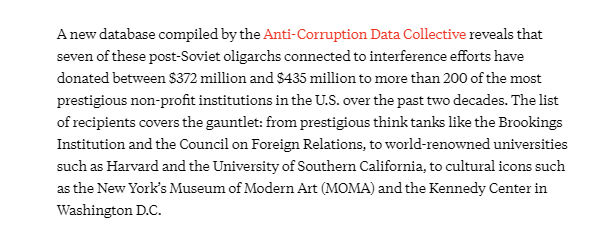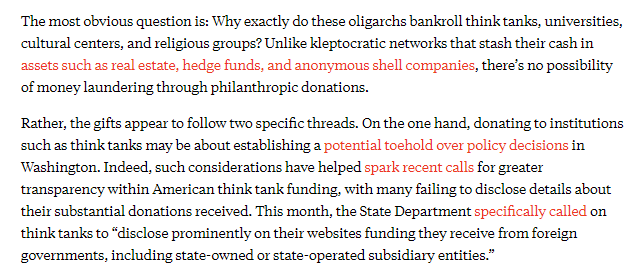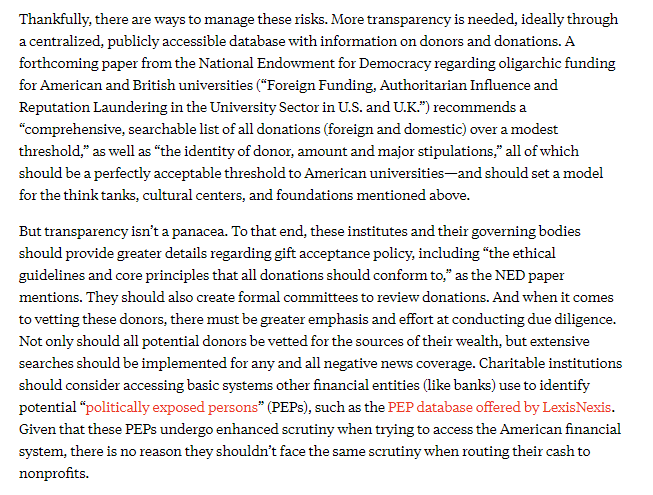
NEW: We compiled a new database of donations from post-Soviet oligarchs tied to election interference operations.
Our findings: They donated between $372 million to $435 million to more than 200 of the most prestigious U.S. non-profit institutions. foreignpolicy.com/2020/10/30/ame…
Our findings: They donated between $372 million to $435 million to more than 200 of the most prestigious U.S. non-profit institutions. foreignpolicy.com/2020/10/30/ame…
These findings came with the work of the great @dszakonyi and @acdatacollectiv (both of which I’d recommend following).
https://twitter.com/cjcmichel/status/1322283198945107970?s=20
The donations from these post-Soviet oligarchs run the gamut, from American think tanks to American universities to American museums to American concert halls, and plenty more: foreignpolicy.com/2020/10/30/ame… 

The question is: Why are these post-Soviet oligarchs funneling hundreds of millions of dollars to willing American non-profit institutes?
The first answer: influencing policy, especially when it comes to American think tanks accepting donations from these kleptocrats.
The first answer: influencing policy, especially when it comes to American think tanks accepting donations from these kleptocrats.

The second answer: reputation laundering, both for these oligarchs and the governments to which they're close. 

These donations present (another) massive hole in the U.S.'s anti-kleptocracy regime.
Just like realtors, shell company operators, and hedge fund managers, these non-profits have no legal requirements to turn away oligarchs or their suspect/dirty money.
Just like realtors, shell company operators, and hedge fund managers, these non-profits have no legal requirements to turn away oligarchs or their suspect/dirty money.

But there are some solutions:
—Transparency, via a public database of donations
—New public ethical guidelines on donation acceptance policies
—Formal donation review committees
—Enhanced due diligence procedures, similar to American banks
—Transparency, via a public database of donations
—New public ethical guidelines on donation acceptance policies
—Formal donation review committees
—Enhanced due diligence procedures, similar to American banks

• • •
Missing some Tweet in this thread? You can try to
force a refresh






